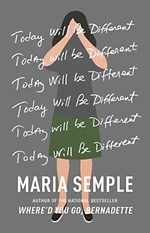Beyond the Multiverse
Author Michael Moorcock
By Adrienne Martini, Fri., Sept. 19, 1997
 |
 |
 |
| photographs by Kenny Braun |
Moorcock was one of the author Guests of Honor at the convention, and his name alone was a draw to many adoring fans who just wanted to shake hands with the man who, in some cases, changed their lives. But this convention also unveiled his Tales From the Texas Woods, a new collection of his shorter fiction and essays, which is being published by Austin's own MOJO Press, and the DC Comics version of his Eternal Champion series, Michael Moorcock's Multiverse.
It was an honor to have the opportunity to check out Moorcock's new digs deep in the heart of Texas as well as to have a few minutes to talk with this disarmingly friendly man who seems relatively unaffected by his fame. (We spoke prior to the convention.) He has not lost any of his convictions from his early days and still has more than a few words to say about writing, publishing, and changing the world.
Austin Chronicle: I guess my first question is, why move to Bastrop?
Michael Moorcock: As I said to someone the other day, sheer blind folly. We -- my wife and I -- first met in Los Angeles. She's from Mississippi originally. We then moved to England and we were in England for 15 years. Essentially, she felt it was only fair if we moved over here for a bit, so she could be close to her family, who she had not been seeing for awhile, which is perfectly reasonable. I have a son in school in Mississippi as well. So it seemed a good idea. Just family stuff, really, the normal reasons people move. Not any particular profound reason.
Austin was our other choice, besides New Orleans. Both choices based on, from our point of view, quality of life, which is mostly bookstores. You can tell something about a city if it's got a lot of bookstores; it's got a lot of readers. And if it's got a lot of readers, you're probably going to find more people compatible with your lifestyle. It just makes sense.
AC: Do you think people in town, given that it is a small town, know what you do for a living?
MM: Yes, but people aren't much interested in writers. A friend of mine, he wasn't a very successful writer, retrained as a plumber and he said it was amazing, it improved his social standing to no end. Nobody ever asks, "Do you know a good writer?"
I used to be in a rock & roll band. It was pretty successful, in their day. But if you don't make a lot of it, people don't make a lot of it either. You can be isolated but you don't have to be. You can soon prove that you're not like that by the fact that you're known at the local bar and have a drink with them. And bands that I was in, we always used to go to the pubs and drink with the fans before the gig. That way people behave towards you like ordinary, real people. People behave politely to you as opposed to treating you like an icon. You just break it down.
AC: What is your day like? Do you get up in the morning and say "I'm going to write from 10 to noon?"
MM: No. My wife complains. She says I never stop. I'm one of those people who pretty much does notebooks all the time. I fill notebooks all of the time, with drawings and notes and bits and pieces, which you can call working. And I don't sleep much. I only need about five or six hours a night.
AC: I'm jealous.
MM: I know. It's one of those funny things. You look at all of the writers who are prolific, and it's basically genes. It's all it is. It's solid, peasant genes. They haven't been touched by anything. I've got a picture of my great-grandfather (points to it) and you look at his hands and it looks like they've just been smashed. He lived forever and my father is still hale and hearty. I think that's all it is, just sheer luck. The right genes fitting into place and bam, off you go. You might as well be behind a mule team but you're not, you're actually writing books.
AC: Which sometimes feels like being right behind a mule team.
MM: But I enjoy the process. I don't like writing, I hate actually having to finally deliver, if you know what I mean. All of the other processes are great but actually having to do my best, I don't like.
AC: Changing the subject a little bit, what is Tales From the Texas Woods?
MM: The main story is a Western. It's, if you like, a fantasy Western with Elric in it. I refer to a character in a lot of books that I've written but I've never actually written the story of the character, called the Masked Buckaroo. He's got a red, white, and blue suit and rides around Texas rightin' wrongs. So I've got a story about him at last.
I did a Sherlock Holmes story a while ago for some friends who have opened a hotel called Baker Street, so that they could give it away to their customers. But it's never actually been published. As it happens, the main character is a Texan so it actually fits very well.
I'd also written over the years one or two pieces about Westerns. I wrote a piece for Sight and Sound magazine, a film magazine, called "How Tom Mix Saved My Life." It's an interesting observation, really. It's about a movie Tom Mix made at the end of his career with Mickey Rooney, and Rooney is actually attractive, which is amazing. It was before he got his second teeth, I think. He's really young. It's a story called My Pal the King. Rooney is kind of the boy king of this European ruritainia. Mix brings his Wild West show to it, that's the plot. What's interesting is that, at a couple of moments in the movie, Mix gives lectures to the boy king on the nature of civic responsibility and decent democracy. It reminds you that there was a time when America really did hold these values up higher than the making of an extra dollar. And it's interesting because it's '33, just at the rise of fascism, and here's Mix actually giving these very decent lectures, little homilies if you like, on what you should do rather than just taking people's taxes and having a good time.
 AC: How do you like working with MOJO and Rick [Klaw]?
AC: How do you like working with MOJO and Rick [Klaw]?
MM: Very well. They're an excellent company. I really do like working with them. I'll tell you, you hear from New York now, or from London, and I had an identical conversation with both my London and New York agents and both of them had identical stories about how publishing has just collapsed. The publishers were dumping books and crapping on writers, doing all of those things.
AC: Apparently Del Rey is currently doing all of those things to Jack Chalker.
MM: They all are. HarperCollins has done some abominable stuff. Rupert Murdoch is an abomination. I won't work with him. I pulled all my books from Murdoch years ago, on the basis Murdoch has no loyalty to any of his businesses. You can have an agreement with a publisher but it's quite meaningless if they're owned by Murdoch because Murdoch will just come in with his heavies, and they are like thugs, they're like Mafiosi, these guys, and they come in and more or less throw people's phones on the floor and kick their desk and tell them to get out. That kind of thing. And it's impossible for people to do work properly when that kind of arbitrary stuff is always around.
So, I've got a principle, and have had it for over 10 years now, of working with non-corporate publishers. It pays off. Actually, those non-corporate publishers are more successful at selling books than the corporate publishers. I'm actually selling more books through what used to be called small presses, I would prefer to call them non-corporate presses or, if you like, partnership presses that are just owned by a couple of people, which is all the old publishers used to be until about ten years ago. I knew Sacar... people knew Alfred Knopf. These were actual people. And they had their own tastes and were idiosyncratic and backed their own judgment and it paid off. You've probably never heard of Earthwright and Entwhistle because they backed their own judgment and failed.
I'm not an innocent either. I've been around for a long time. I'm lucky in that I have enough income to be able to make moral decisions that a lot of people can't afford to make. I don't expect other people to make them if they can't afford to make them. I wouldn't judge people for that reason. But I can afford to make them and, I think, that if you can, you're probably doing something for a few other people. It's the best you can do.
I used to think, in the Sixties, that I could overturn the entire corporate structure but that's a different story.
AC: I think a lot of people did.
MM: Now they've probably joined it.
That's why I'm with MOJO. And MOJO will sell as many copies of a hardback book [as a corporate publisher] these days. In France, I can publish cheerfully with small publishers because they actually have a law there that makes it illegal for distributors to just have big companies. They have to give the same treatment to every publisher, which is very good at encouraging small business. I mean, all countries are supposed to encourage small business but the French are particularly good at doing that. You get a more even structure across the whole country. People publishing in Nance are able to do as well as people working in Paris. Of course, the Parisians are still totally snotty to them.
Even without help, publishers like MOJO and White Wolf are nowadays able to go to places like Barnes & Noble and be listened to because places like Barnes & Noble are beginning to realize that a lot of their good-selling books are coming from small presses. They no longer just listen to Random House because Random House has produced three billion versions of exactly the same cloned book. Something like MOJO is doing something quirky which nobody in their "right mind" would publish and has done perfectly well with it.
The bad thing is that usually the corporations come lumbering along and just gobble up the smaller guys. But I don't think they can afford to at the moment, which is the other thing. They're in an appalling collapse. They're not actually looking to expand. Murdoch's been trying to sell HarperCollins for years and nobody will buy it. It's full of holes, it's rotted from the inside entirely due to checkbook publishing. One of the main guys running it now is a guy that I have known since he was 15 and he was always exactly the same, just bland and careful. And he's produced their collapse. It's wonderful, really. He'll probably be prime minister next.
AC: Do you think that you can chose smaller publishers partially because your fan base is so strong?
MM: Yes. It's absolutely grassroots-based and it always has been. I've always preferred to base my success entirely on readership. My continuing success, which has gone on for something like 35 years, has always been the same. I've had a very solid readership all that time. One of the reasons is I don't like to short-change readers. I really won't do that. If I feel that maybe a series is no longer working, I'll just stop it. I won't draw it out. I won't, or haven't yet farmed out any characters or anything like that, which most of my contemporaries by now are doing. But I regard that, in certain cases, as totally unnecessary since you'd think they were rich enough already. People keep offering me these big deals on my Elric character or movie deals where I lose control.
Fundamentally, you've got to keep the authority of your readership. Without that, everything starts to just fall apart. And that's where popular writers frequently go wrong, because they always keep repeating the same book, because that's all they can do sometimes or because that's what the publishers insist on or because their ambitions were simply to be bestselling writers. They may not have any other great ambition. It means that their life tends to be relatively short.
AC: Will it be gratifying, do you think, to meet your fans at Worldcon?
MM: I do that anyway, through bookstore signings and things like that. All these things are terrifying. There are usually over 5,000 people, many of whom feel that they know me, and I can't remember very well because it goes back 10 or 15 years. It's my phobia. I hate seeming to be rude to people. And I've got a terrible memory for faces, not faces, names. Sometimes I'll actually confuse a face. I've actually confused best friends on occasions, close friends that I've confused. One time I was at the theatre and I greeted a friend that I thought was a friend from years ago. It turned out to be my agent.
I don't like to just sign. I feel that that's wrong. I also think, essentially, I'm a guest of this convention. Now, they haven't actually paid anything to get me there, in this case. But, normally, somebody's paid for you to be there, which means that it's the ordinary fans who pay. It's their fees that have paid for you to be there. So, to not be available to them, to me, is wrong. If you take the job, you've got to do the job and be available to the people who paid for you to be there. In this case, nobody's paid, but they don't know that. I'm still stuck with the logic of it.
I do tend to stay on the floor. One of the reasons I stopped going to conventions is that all of the pros tended to find a room and stick in it and keep everybody else out. I've never liked closed groups. It's just not my idea of a good way of spending my time. With the convention, basically, I'm going to do the full thing and I'm going to do it right.
AC: So what do you think most fans want from you when you go to a signing or make an appearance?
MM: I think they want confirmation of their idealism, which I seem to be able to give. I'm only the person I am. I really don't have any other great persona. And I like them. I like meeting them. That bit I enjoy enormously and I spend a lot of time on it. There's a guy called Moebius who can keep people there for hours and hours because he does drawings in every book that comes on, cheerfully. You just feel well-disposed toward people who are keeping you in a living. How could you not be nice to people who are actually paying for you to have a nice house and lots of junk?








